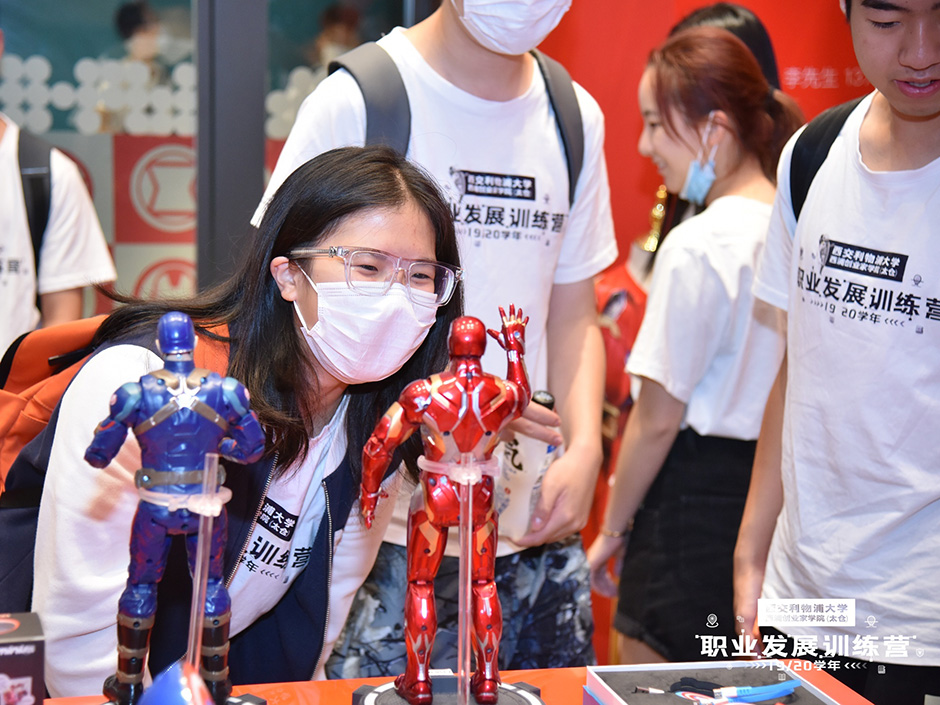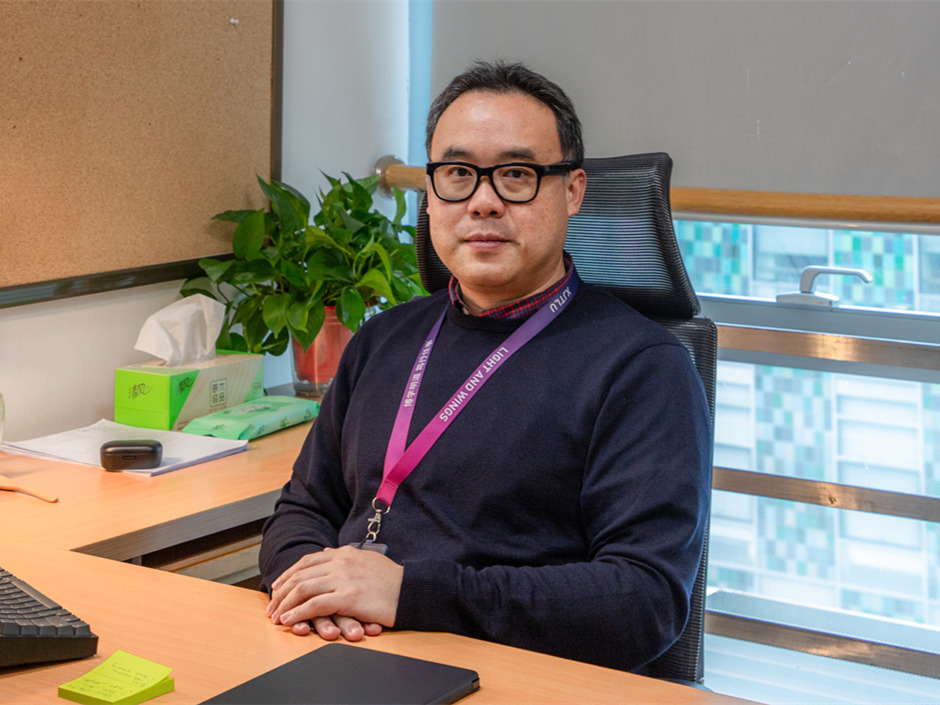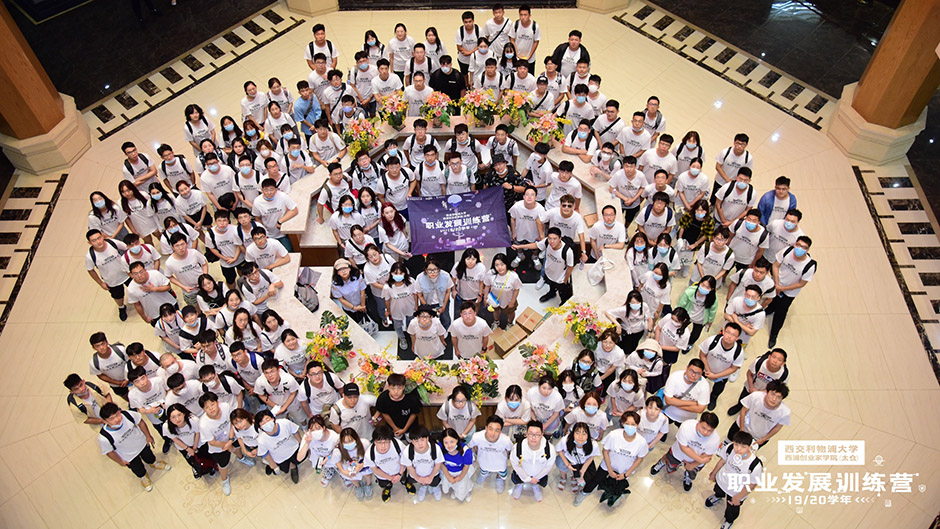29 Mar 2021
In the second article explaining the XJTLU Entrepreneur College (Taicang) difference, we talked with Professor Angelos Stefanidis, Dean of the School of Internet of Things and the School of AI and Advanced Computing.
How would you describe the difference between programmes of XJTLU Entrepreneur College (Taicang) compared to other programmes, at XJTLU or elsewhere?
Other educational institutions might say they work with industry, but we take it further. Our industrial partners are systematically embedded in our degrees across all aspects of academic life – teaching, research and professional practice.
On a practical level, how do industrial partners become embedded in the degrees?
As one example, all Taicang students spend five weeks in the summer in our Professional Development Programme (PDP), working within an industrial setting with partners on themes related to their discipline. A typical PDP for Year Two AI students might involve working with our School’s designated industrial partner, Sugon, and half a dozen others. Besides taking a few industry-delivered courses, students take on chunks of real-life industry projects, develop ideas, and participate in a hackathon, with the industrial partner assessing their contributions. The students go away realising: “The skill we learned in April in the classroom is what this company uses daily to deliver on client-based projects to make money.”
In another example, our students will have multiple work placements. In a traditional university degree programme, a student might work for a company for five weeks at the end of Year Two or Year Three and then write a report about it. Instead, our students will experience stints of work, long placements, seamlessly integrated with what they have been studying throughout their degree programme.

When students graduate, what advantages does their degree have for them and for industry?
Through tailored academic knowledge, industry-specific skills development and professional development, the industry partners help the students to become more relevant to them when they graduate. One of the biggest costs companies face from an HR perspective is early staff development work and integration of new staff with the industry; our students have already experienced this before they graduate.
Instead of producing programmers and networking engineers and business analysts, I want to see my graduates as being self-sufficient, people who know how to learn. You can learn to program watching videos online or practicing on your own laptop. But what what you don’t get – and what XJTLU Entrepreneur College (Taicang) provides – is the ability to learn to analyse, synthesise, to reflect, to grow, to be confident. That way, if someday someone comes into your office and says, “I’ve got this problem, I need you to find a solution,” you don’t panic.
What atmosphere do you envision for your Schools once the physical space is constructed?
I would like to see a big room with glass windows all around. In it, you see a bunch of students, undergraduate and postgraduate researchers, playing around with technology, working and talking to one another, running experiments, all in a very fluid way. And then I want to see companies come into that space and say, “This is the technology we’ve been working on. Here are some of the prototypes of the new products that we are developing.” Or “This is the latest product that we've released to the market, and we want you to use it and tell us what you think.” The energy in the room would be of fun and excitement. It would be a place where our students would rather hang out with their university mates than at Starbucks.

What is special about the academic staff at XJTLU Entrepreneur College (Taicang)?
We seek staff who co-create with their students. If such staff have some equipment, a bit of funding, a kit from an industrial partner and knowledge of a problem the industrial partner is trying to solve, they would say to the student, “See if you can spend a bit of time on finding the solution.”
We also marry the individual’s research interests – what makes them jump out of bed in the morning saying, “Oh, I’ve got a brilliant idea” – with finding solutions to real-life problems for a company. And further, we do this across disciplines, putting people from different disciplines in the same room to solve problems together. And further, embedding undergraduate students with their enthusiasm, energy and excitement into this research is a priority for us – they make it all gel together. When we take the work back to the company, they say, “Oh, these people are good, they are actually giving us solutions.”
What about a student considering XJTLU Entrepreneur College (Taicang) who doesn’t want to rule out postgraduate studies? Would they be at a disadvantage upon graduation?
No, in fact, I think they would find our undergraduate degree an advantage. Upon graduating from XJTLU Entrepreneur College (Taicang), you will have the ability to learn, you will have resilience and confidence. There will be nothing stopping you from conquering whatever you decide to conquer. Furthermore, academically speaking, there is no difference between the academic rigour of what we teach in our programmes compared to others across XJTLU.
Professor Angelos Stefanidis is the founding Dean of the School of AI and Advanced Computing and the School of Internet of Things at XJTLU Entrepreneur College (Taicang). He is the former Head of Department of Computing & Informatics at Bournemouth University (BU), UK. Prior to that, he was the Associate Dean for Global Engagement at BU. Additionally, he has been the Director of Continuing Professional Development at the University of Westminster, UK, where he managed a large portfolio of accredited IT training programmes for industry. He received his PhD in Information Systems from Loughborough University, UK.
Recently, he worked on developing a new research centre focusing on AI for Digital Health, combining expertise in data science, digital health, and AI. He is a member of the European Association of International Education (EAIE) Professional Development Committee, Member of the British Computer Society and a Chartered IT Professional, Fellow of the Higher Education Academy (UK), and Member of the Association for Computing Machinery (ACM).
By Tamara Kaup
29 Mar 2021
RELATED NEWS

The XJTLU Entrepreneur College (Taicang) difference
Over the next couple weeks, Year One students at Xi’an Jiaotong-Liverpool University choose the academic degrees they will pursue in Years Two through Four. ...
Learn more

First PDP summer school draws to a close
The first Professional Development Programme at Xi’an Jiaotong-Liverpool University’s Entrepreneur College (Taicang) came to a close on 6 September. A total ...
Learn more

New academic staff add perspectives and expertise
With the arrival of Teachers’ Day, Xi'an Jiaotong-Liverpool University welcomes the latest additions to its growing number of academic staff. These instruct...
Learn more








